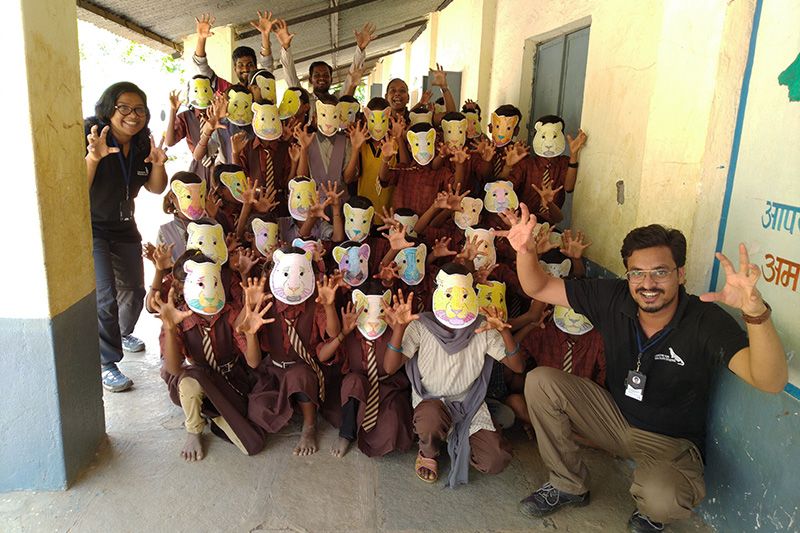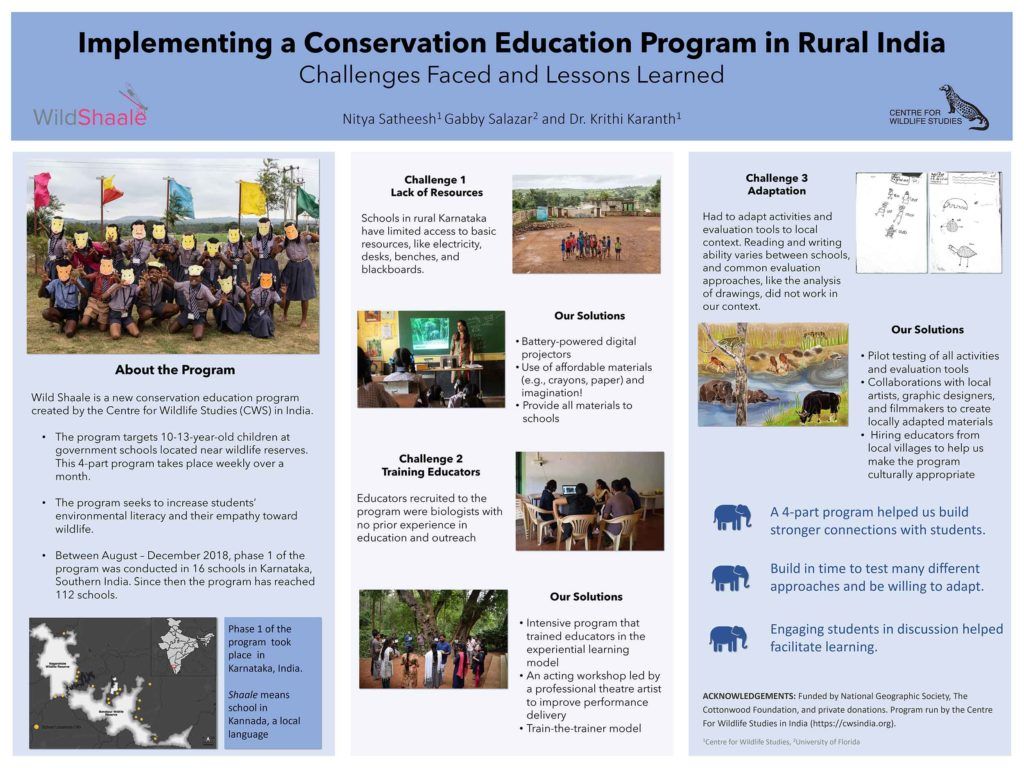Living alongside predators
When you live alongside large cats, it’s not always easy to be a fan of wildlife. “A lot of people are simply unaware of the devastating impacts that a single crop loss or livestock predation incident can have on a family. If a herd of elephants come by, they can wipe out an entire seasons’ crops, which means the family has no means to survive for the rest of the year. In the same way, livestock are often seen as banks for poor people. The loss of a cow or a goat can have drastic impacts on a families’ financial stability and ability to recover from shocks,” says Dr Krithi K Karanth.
Human-wildlife conflict, especially with carnivores, is a problem around the globe. That’s why PTES is providing funds to Krithi Karanth in India to work with children to start to change attitudes towards wildlife. Krithi and her colleagues have established a unique project: Wild Shaale. ‘Shaale’ in Kannada, means ‘school’. This unique environmental and conservation-education programme has been designed for rural school-going children aged between 10 and 13 years, who live in close proximity to wildlife reserves. It has three primary goals: to nurture an interest in India’s wildlife and wild areas, to work with children to develop a tolerance for wildlife in rural communities, and to educate people about local wildlife conservation issues whilst teaching basic coping and safety strategies so people and wildlife can co-exist securely.
Changing local attitudes to big cats
Krithi and her team started their project last year by identifying suitable schools to work with within a 10km radius of the Tadoba and Melghat tiger reserves, and Pench tiger reserve. They also obtained the relevant permissions from local government, set up multiple teams, established field bases and were ready to start. Last summer and autumn they visited 54 schools around Melghat. Now they’re preparing to visit 15 more around Pench and 19 near Tadoba.

Photo credit Ishika Ramakrishna/CWS
Thirty-four project coordinators and educational staff have been given the training they need to teach the school children over four sessions. This training includes fun role-playing activities where they had to pretend to be livestock and leopards. The education programmes are fun, but they are also conducted really rigorously, with the children’s knowledge of the environment, wildlife and issues being properly evaluated both before and after the lesson have taken place.
Running these education and awareness programmes on such a large scale means that the chances of changing local attitudes stands a really high chance of success. We hope Krithi and her team will teach almost 3,000 children about the benefits of wildlife, how we are all interconnected with the environment, and also, importantly, how to cope when living alongside predators. Wild Shaale has the potential to give leopards and other Indian wildlife a chance of thriving in the future, alongside people who care about it, and understand it.
Learn more about this project

